
Are you looking to share your love of SCUBA and educate others? There’s no better way to do so than becoming a SCUBA instructor. Our private SCUBA instructor diving courses open the door for serious divers to turn their passion into a way of life. With the determination, practice, and proper certifications, you’ll be able to teach people about the sport you love – and get paid in the process. Join Dreaming Sea Divers for Instructor Development Courses, happening October 16th-24th, 2022!
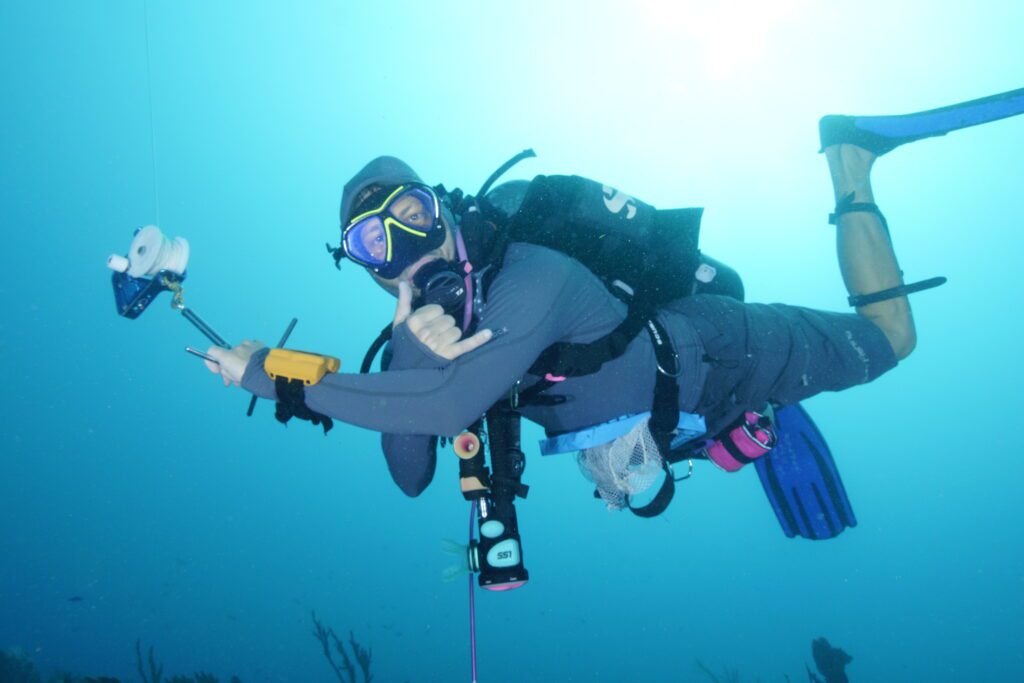
This private SCUBA certificationcourse enables participants to obtain the first level of professional diver in the SCUBA industry: Divemaster. This distinction will allow you to work in the industry to guide certified divers, assist instructors with training, and teach a select number of courses (like refreshers).
Those interested must be 18 years or older, have a minimum of 40 logged dives, and must bring their own basic SCUBA equipment. Additionally, a Rescue Diver and CPR Cert from and recognized agency is a prerequisite. Throughout the course’s instruction, participants will conduct activities like:
Please note that the Divemaster Course does not include rental gear, so come prepared! For more information, visit the course event page. We’re excited for you to partake in our West Palm Beach SCUBA instruction to become a role model and mentor to fellow divers!
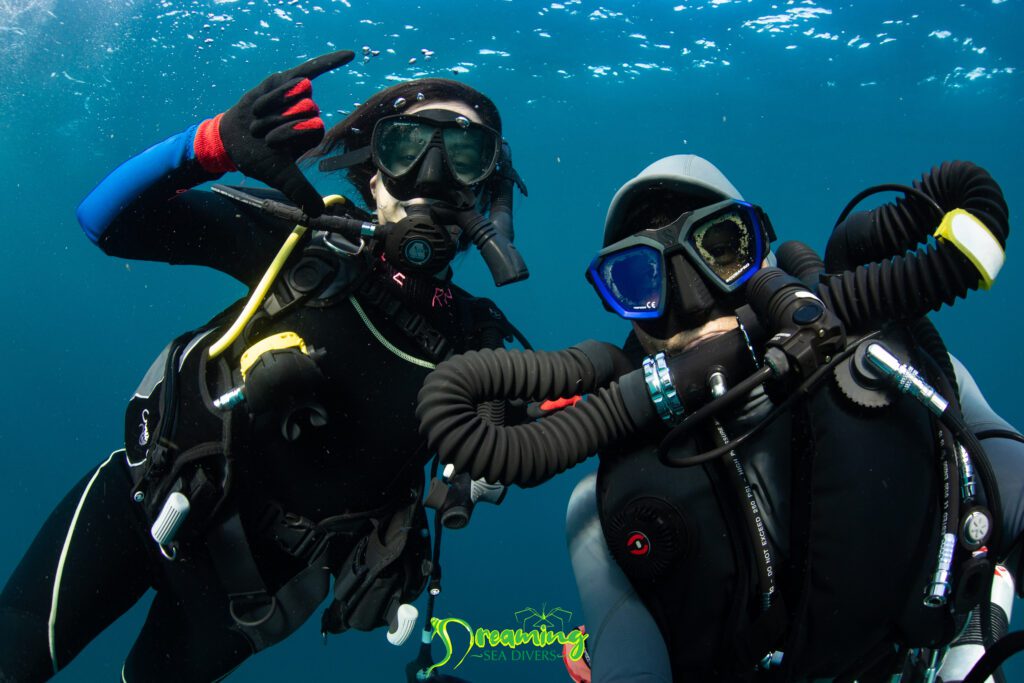
This course grants participants the knowledge to teach and certify students from Open Water up to the Divemaster level. Through the Instructor Development portion of the course, you will learn how to teach to the standards of SCUBA Diving International. Scenarios will be presented to test your aptitude in dealing with potential difficulties students may have along the way. We’ll also go over the business aspects of diving so you can be armed with the know-how to make diving a career. From there, you will be evaluated on your instruction abilities.
Those interested must be 18 years or older, have a minimum of 100 logged dives, and must bring their own SCUBA equipment. A Divemaster or Assistant Instructor and CPR Certification from a recognized agency is a prerequisite. Throughout the course’s instructional workshops, participants will learn about:
Please note that the Instructor Development Course does not include rental gear, so come prepared! It does, however, come with the Pro OWSI Kit. For more information, visit the course event page. Come learn from a renowned South Florida SCUBA diving certification instructor, and leave with the experience to start your own operation!
As an avid diver, you know that your skills and equipment can take you to places otherwise unimaginable. The best way to show the world below the surface to others is educate and get them physched about diving.
When taking one of Dreaming Sea Divers’ Instructor Development Courses, you’ll go home with the necessary skills to begin your journey as a professional dive instructor. Reach out to John and the crew to reserve a spot on our SCUBA West Palm Beach diving course roster. We’ll see you with fins on and an appetite for learning!
SCUBA Diving transports us to another world - one relatively unexplored, but with so many experiences to offer. From the flora and fauna that inhabit the clear waters of Florida, to the amazing people you meet along the way, it's no wonder this sport is so easy to fall in love with. For those unfamiliar with some of the history, certifications, and equipment that come with SCUBA, we've laid out some answers to your common questions! Take a dive in and explore them here!:
Depending on who you ask, you’ll get a few answers.
Many diving historians say it was in 1825 when the Englishman, William James, invented the first open-circuit system (the air you exhale is vented, not re-breathed). The apparatus consisted of a copper helmet sealed to a waterproof suit. A container of compressed air around the waist fed into the helmet and was manually regulated by the diver.
Other experts say it was in 1878, when Henry Fleuss was granted the first re-breather patent. His apparatus enabled divers to stay underwater for up to 3 hours.
The most definitive example of the first SCUBA was in 1943, when french divers, Jacques Cousteau and Emile Gagnan, invented and successfully performed missions with their Aqua-Lung device. The system is still functionally-similar to the self contained underwater breathing apparatus used today.
These inventors each contributed essential knowledge towards the world of SCUBA we know today.
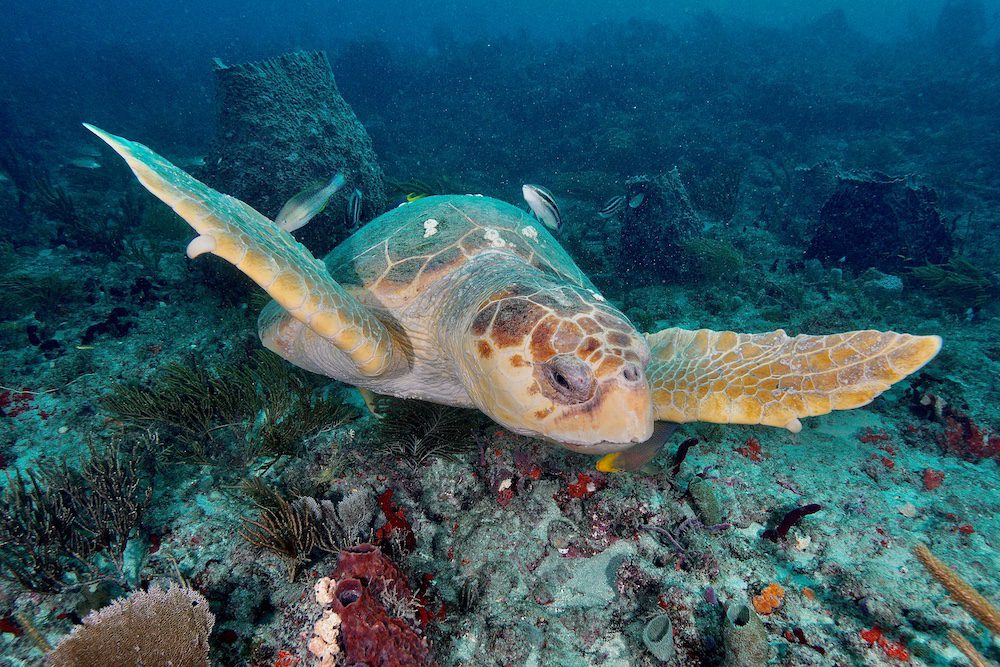
Individual experience level and the type of diving affects how deep you can dive. For those with basic open water SCUBA training, the limit is 60 feet (18 meters). With advanced open water recreational training, that limit is extended up to 130 feet (40 meters).
In the Technical Diving discipline, the average diving depth is 130-330 feet (40-100 meters), depending on the complexity of the site and diving plan.
It’s essential that you complete the proper training and dive certifications before taking the plunge! Dreaming Sea Divers courses can take you from beginner to expert with our expansive knowledge of SCUBA.
Paul was like a mighty tree that could weather any storm. He had seen everything; nothing phased him. His smile and warmth will be missed, but will live on in everything he touched
Buying your gear versus renting it is a big step for any new diver! It solidifies your commitment to the sport, but it can be daunting to know what to buy, and for how much. Here’s a general overview of the essentials, and how much you’ll likely shell out:
You’ll have to dive into your pocket to own your own SCUBA gear, that’s the truth! Finding a mask and fins that fit comfortably is essential to avoid distracting frustrations underwater and its important not to always go with the least expensive option when it comes to life support equipment such as your BCD and regulator. Finding the right piece of equipment for your budget that does not sacrifice features and safety is what we do at DSD. We also offer rentals of many different manufacturers and models so you can try before you make that big decision for your regulator and BCD.

We are certainly biased, but most divers will tell you… absolutely! There is an enchanting world below the surface, and private lessons open the gateway to exploring it. The courses that Dreaming Sea Divers offers under our Diving Fundamentals section will give you the basic diving skills and knowledge you need to begin your journey to becoming a qualified SCUBA diver. By taking these courses, you’ll get to experience the excitement of SCUBA diving and the amazing world below the surface. These programs serve as the stepping stones to further your diving education and gain the confidence to do more advanced dives later on.
With a private course, your time is valued and all of John's attention is on you. The customer service and high level of instruction that Dreaming Sea Divers provides is what sets us apart. No one does it quite like us.
In order to experience the basics of recreational diving, you’ll need to obtain your Open Water Certification. No prior experience is required, but you must be 10 years or older and in good physical health to swim and move in and around water.
The training begins by developing your diving knowledge. You will read an open water manual or complete an e-learning course to familiarize you with terms, equipment, signals, and planning. From there, you’ll take a final exam to ensure you have thorough knowledge of diving basics.
Then, the real fun begins. You will head to a confined aquatic environment, such as a pool, where you’ll get to practice your new knowledge with the instructor. This will likely take place at the facility nearest to you. The training covers how to:
Once you complete the confined water procedures, you'll head to open water. You’ll make four to five dives over multiple days, enabling you to flex your newly-learned skills and enjoy the sights of the local aquatic environment. This open water segment can be done at a location near you, but there are accommodations to begin this training locally, then complete it elsewhere (like Palm Beach, Florida!).
If you’ve ever wanted to take SCUBA diving lessons, experience unparalleled adventure, and see the world beneath the water, we encourage you to visit Palm Beach and enroll in our Open Water Certification Course!
You don’t have to live near the ocean to get SCUBA certified. Even if you live in a land-locked area, there are numerous locations that offer dive training. As mentioned earlier, you can begin your in-water certification at a location near you, then continue it elsewhere (perhaps the clear waters of West Palm Beach) when traveling on holiday. Locations can include lakes, quarries, and other bodies of water you may not normally associate with SCUBA.
Completing the training and attaining the level of Divemaster can take anywhere from six weeks to six months, depending on the frequency with which the dives are taken.
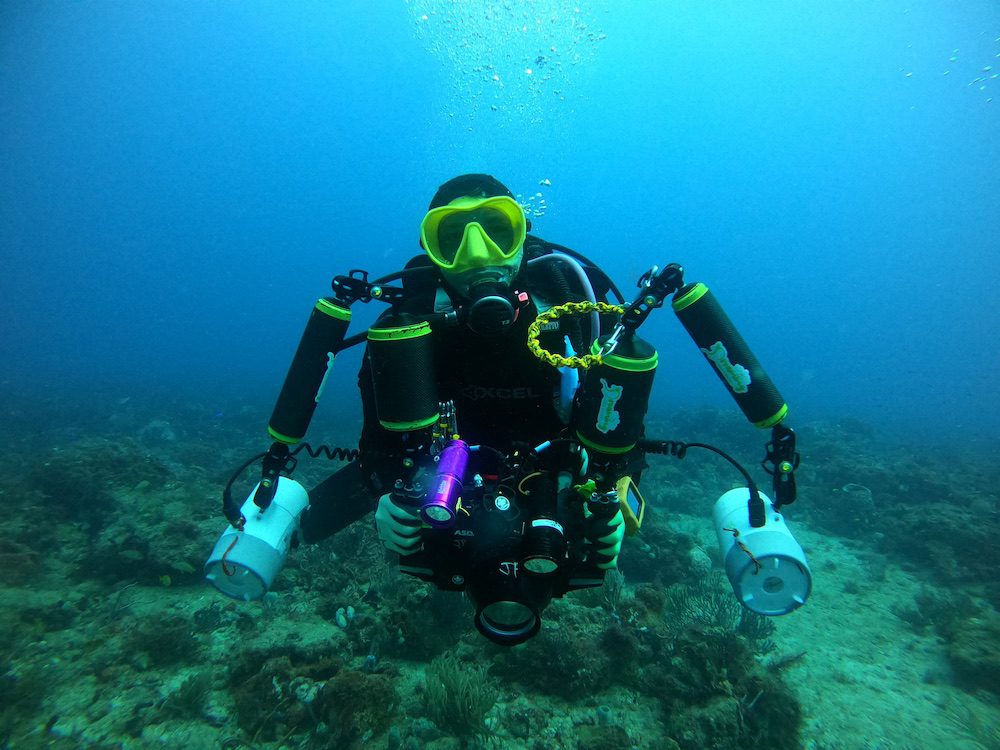
The terms “Master SCUBA Diver” and “Divemaster” may sound nearly identical, but they are different certifications. Both qualifications indicate highly experienced, knowledgeable divers.
A Master SCUBA Diver certification means that one has met the following criteria:
A Divemaster certification means that one has met the following criteria:
Just because your SCUBA tank is at the end of its life, doesn’t mean that it has to be tossed in the landfill! Repurposing tanks can range in creativity. Some opt to donate their used tanks so they can be used as props in diving education courses. Others take them to local artists to give them material inspiration for their next piece.
No matter what, ensure that the tank is unusable and not under pressure before scrapping or repurposing it. Old tanks are not necessarily unusable – they may just need a tuneup. If the tank's hydrostatic test date is expired, bring it to a facility for evaluation. Steel tanks have a very long life and some from the past decades can still be found in perfect working order.
Contact Dreaming Sea Divers to learn more about this awesome sport and how you can get diving today!
Ready to become a Divemaster? It’s a serious question and will often lead to other inquiries about the industry or its courses. In this blog, we’ll dive into a couple of common questions about what to expect.
As a Divemaster, you are responsible for organizing and leading recreational dives and supervising as a dive guide. You can also teach dive courses and complete scuba reviews.
Another opportunity as a Divemaster is that you are now qualified for the responsibility of overseeing scuba diving operations for salvages or work at a resort.
The Divemaster SCUBA diving lessons are typically very flexible and depending on one’s schedule, can be achieved in three weeks or up to six months. We have trained experts who will be able to provide one-on-one support during the lessons. Expect to learn more about theoretical concepts in the course ranging from the physics of diving to decompression theory and first aid.
When it comes to diving equipment, you want the best tools for the job. Must-haves like a snorkel, mask and dive computers should be at the top of your list. Some other diving equipment you may need to become a divemaster include:
The conditions when trying to achieve a SCUBA certification are some of the most challenging you’ll face. This is because divemasters want to help you flourish in any kind of water, so you can do the same to help your students.
Training typically occurs in a pool or in a confined area of water such as a very calm beach.
Make sure you know how to perform tasks like setting up gear, entering or exiting the water, basic underwater navigation techniques, safety and buoyancy control in any kind of water conditions.
In order to become a divemaster, you need to be 18 years or older, have at least forty (40) dives logged and successfully completed, a signed medical statement from your doctor within the past year before the course, and SCUBA certifications in Rescue Diver and Emergency First Responder courses.
Get ready to be tested on treading water for 15 minutes straight, swimming a distance of 400 meters and snorkeling for 800, and then tow a tired diver for 100 meters. Lastly, make sure you and a buddy know how to do a complete gear swap before obtaining your SCUBA diving certification.
Learning about theoretical dive situations and information will be a breeze if you’re motivated to participate and pass the test as well.
Time management, organization, good communication and patience are very important when it comes to becoming a good Divemaster. Overall, if you strive to be a role model as a dive professional then you will certainly inspire students and help them make progress.
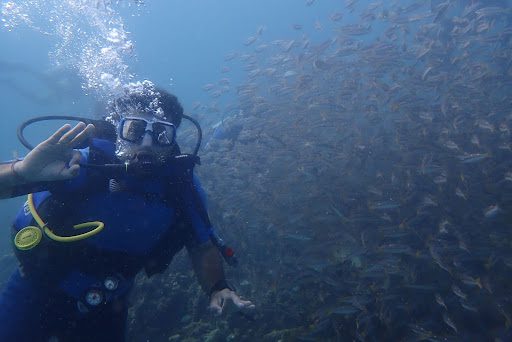
The founder and Divemaster of Dreaming Sea Divers, John Phillips, has been passionate about SCUBA diving since he first took his Open Water Course in 2014. His experience also includes working on dive boats, fill stations and retail stores, so he’s learned a lot and is ready to assist others with fulfilling their dreams of working in the diving industry. John also is excited to meet many serious divers and turn their hobby into an enriching, fulfilling career. After all, who wouldn’t want a career that blends their passions with the ability to teach and earn an income from it all?
Dreaming Sea Divers can help you achieve your diving goals for any lifestyle, so click here to learn more about our programs.
You’ve probably heard that 71 percent of the earth is covered in water. Did you know that the ocean holds about 96 percent of it? SCUBA diving has grown in popularity and accessibility since many people can readily explore the ocean all around the world. Whether you are on vacation or live near the sea, this fun, non-competitive underwater sport is ready to take you on an adventure.
Some people may not know there are a variety of SCUBA diving courses available to them. You can either learn to dive from or maximize the day by diving from a boat, sometimes reaching harder to get to spots.
Here we go over the pros and cons of both SCUBA diving types so that you can choose the right venture for your first time:
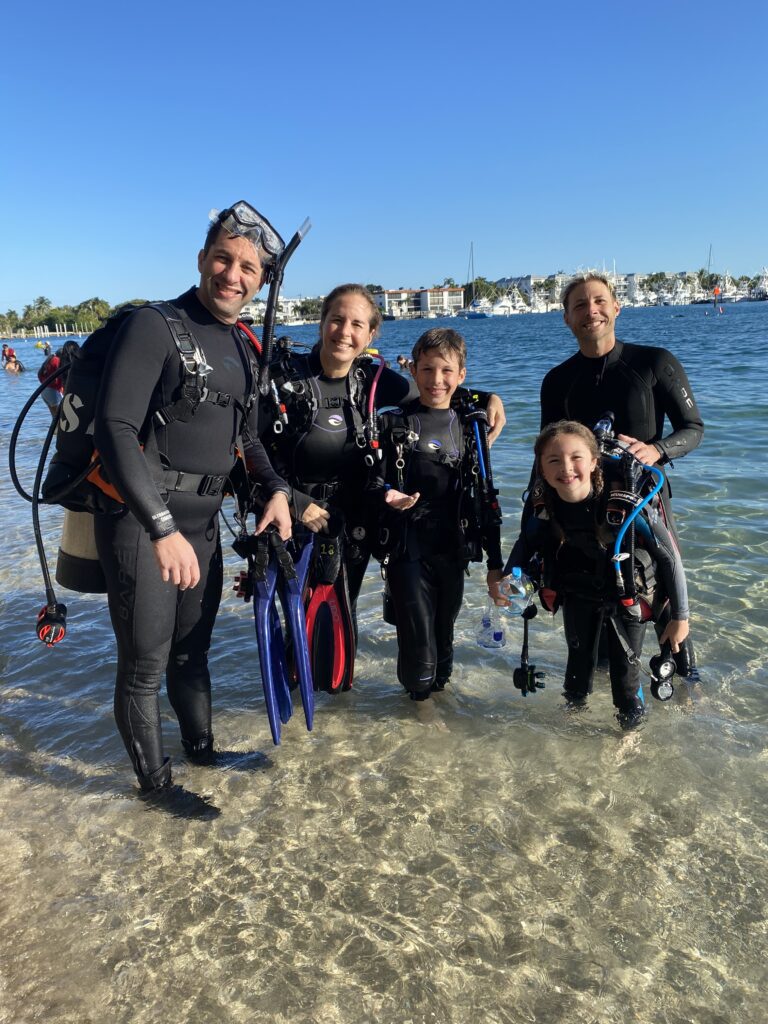
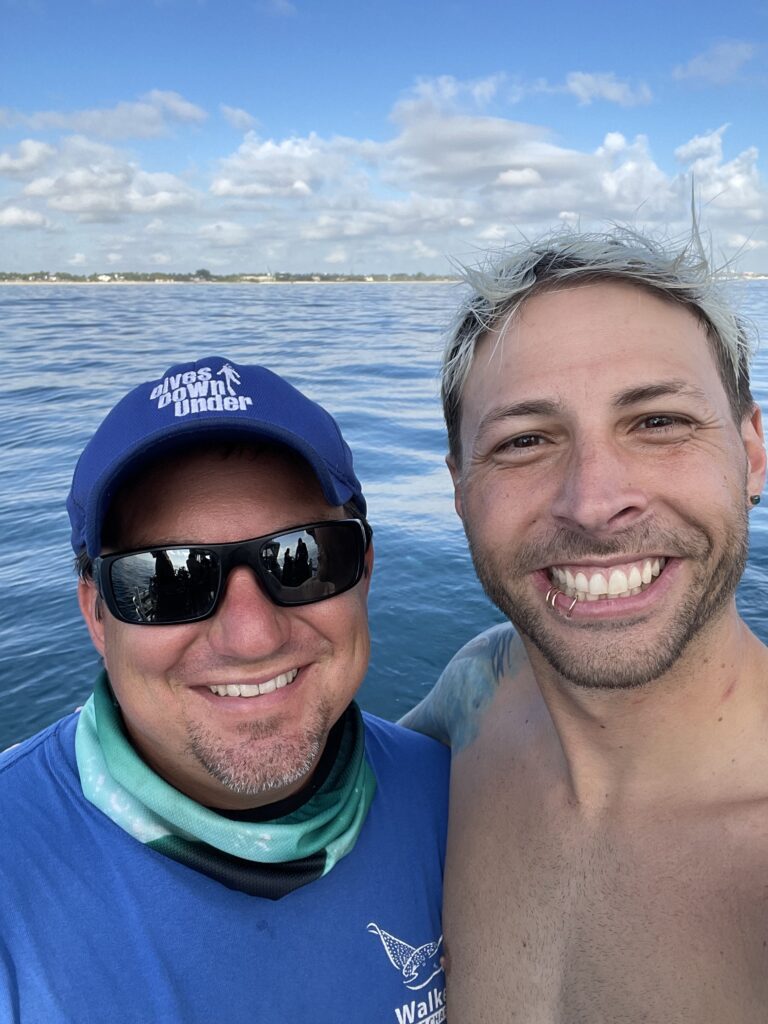
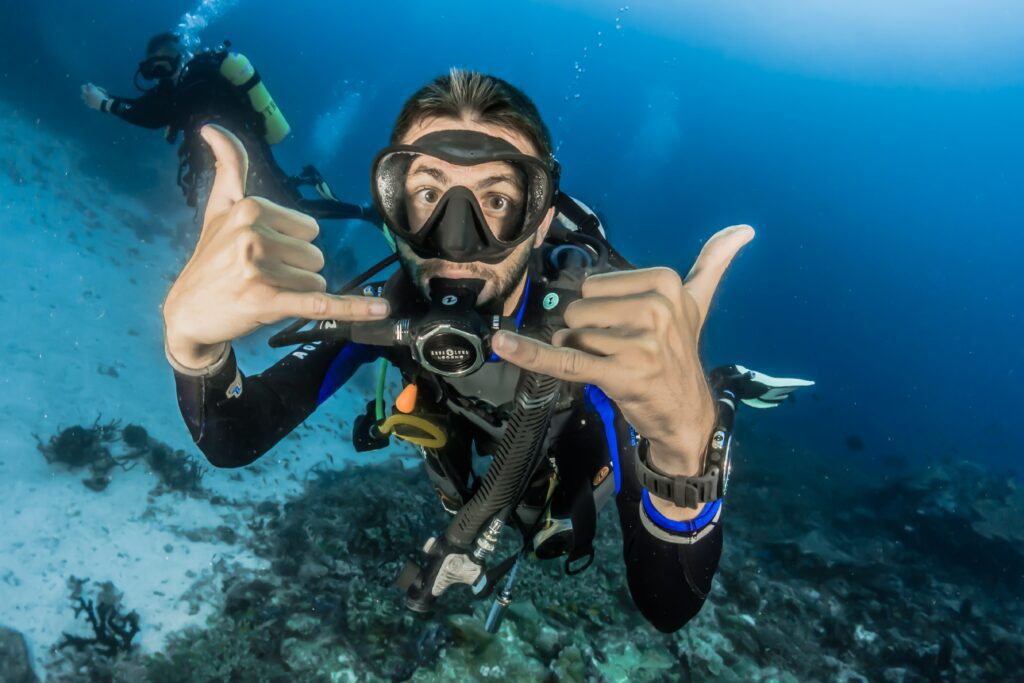
This list is a great way for you to decide what kind of diving is best for you after certification or perhaps during your courses. The pros and cons of shore diving in comparison to boat diving are ultimately relative to the individual experiencing the adventure. No matter what you’re looking for, Dreaming Sea Divers makes sure you have fun learning the fundamentals while exploring safely.
With most classes that we offer, Dreaming Sea Divers includes some shore diving and some boat diving so you get to learn for yourself which you like better and you can see first hand the pros and cons.
We created Dreaming Sea Drivers to make sure you become a confident SCUBA diver. We offer a series of courses tailored to supplement your diving knowledge. Whether you are visiting West Palm Beach or a local to Florida, allow us to give you private SCUBA diving lessons or a private guide from shore or boat. Our goal is to give you an exciting and relaxing experience you'll never forget.
Contact us today to book your next SCUBA diving classes!